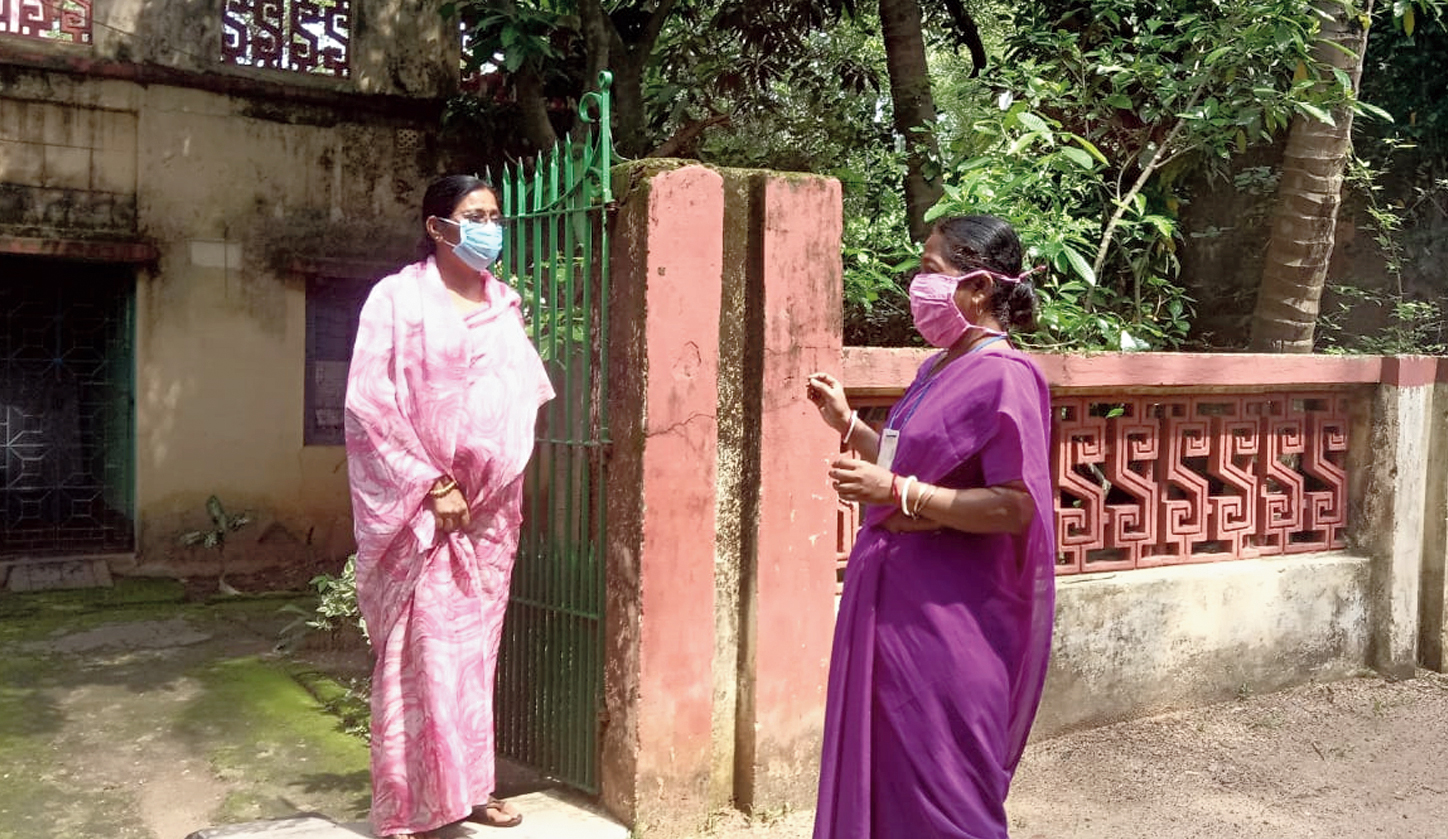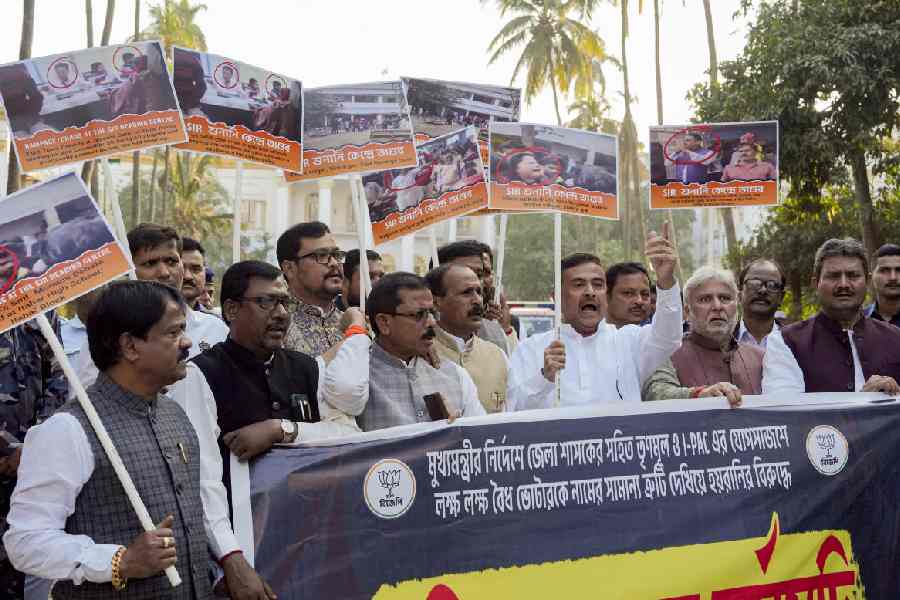Mithu Singha, 43, has not been able to find the time to cook a meal at home for over two months.
In late March, Mithu, like the nearly 54,000 other Accredited Social Health Activists (Asha) in Bengal, was placed at the forefront of the state government’s battle against the pandemic in rural areas. The Asha workers have been tasked with monitoring people in home quarantine in addition to their regular duties.
Following the unprecedented crisis, life, as Mithu knew it, has taken a tumble. Still, the mother of a teenaged son has been working 14 hours a days for a monthly pay of around Rs 4,500 without complaint.
Mithu said she had realised the “paramount importance” of the task at hand in rural India, where in addition to repeated awareness drives, social stigma and confusion over public hygiene need to be treated with a firm hand.
“My husband has been helping with home chores since March. If it were not for him, I don’t know what I would do,” Mithu said.
She leaves home by 6am every day, completes her rounds on foot within a 20km radius of local villages where people are in home quarantine, and then cycles to the Patharchapuri health centre in the afternoon for her regular shift advising expecting and new mothers.
Besides tracking the health of those in home quarantine — the number is rising steadily as migrant workers are returning in droves with the asymptomatic among them advised 14 days’ isolation at home — the Asha workers are having to keep a record of SARI (severe acute respiratory illness) and ILI (influenza-like illness) patients.
“I need to prepare the reports, which are sent to the local block health office,” Mithu says.
The all-women force visits those in home quarantine to check for symptoms of Covid-19 and reports suspected cases to block health officials.
Clad in violet saris, women like Mithu keep track of at least a hundred people each in home quarantine in their respective gram panchayat areas. The data that the foot soldiers generate through their daily visits across villages keep the government informed about the ground reality.
The state government is giving an additional Rs 1,000 per month to involve the Asha workers in Covid-related work. The Asha workers receive a monthly salary of Rs 3,500 a month and another Rs 100 for phone bills.
“I manage to cycle home once or twice in between work so I can take a shower and eat. It is hard to maintain hygiene and social distancing with so much work at hand,” Mithu said.
However, asked about the real challenges besides the physical hardship, Mithu said it was the unfounded social stigma that health workers like her were facing across the country amid the pandemic.
“That make the days even longer,” she said, referring to a recent incident when she and her family were abused by a group of drunken youths who had gathered in front of their window at night.
“They were angry because I was supervising the home quarantine of a girl who had recently returned from Jharkhand. They wanted to throw her out. This frustrates me,” Mithu says.
A related and recent problem in her line of work, Mithu said, is that villagers are hesitant to take pregnant women to hospital fearing the coronavirus.
“It’s a Herculean job persuading such people to do the right thing for their family. As though one problem was not enough, people keep presenting us with newer ones,” she says.
Goutam Roy, the pradhan of Nagari gram panchayat, agrees that workers like Mithu are holding up the country’s Covid-19 response in the face of extraordinary social and personal challenges.
“Asha workers are the only hope for rural areas right now. In addition to keeping Covid-19 at bay, they are ensuring their regular duties are fulfilled,” he said.
Another Asha worker from Nagari said she and her colleagues had given up expecting people to appreciate their “unspoken” efforts.
“Our friends and neighbours whisper behind our backs and create unnecessary social stigma. We suffer from enough of that anyway, but as long as we are saving people’s lives, we are satisfied,” she said.
Ayesha Khatun, a state committee member of the Paschimbanga Asha Karmi Union — a platform backed by the SUCI’s trade union — said the organisation had demanded a one-time emolument of Rs 10,000 for the Asha workers combating the pandemic and written to block officials to provide them with PPEs.
“Asha workers are also working at some quarantine centres to check the health of migrant workers. They are really vulnerable. So we demand PPEs for them along with an emolument of Rs 10,000,” Ayesha said.










